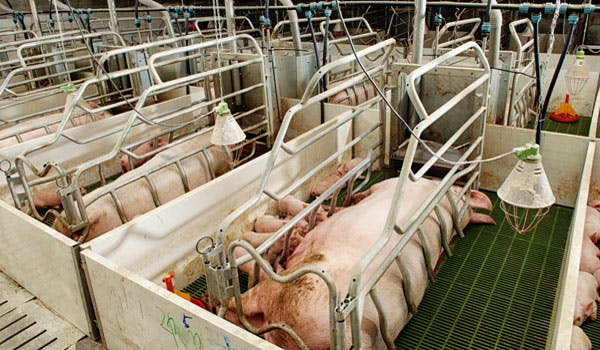Australian pork producers have passed what they believe to be a ‘key milestone’ in phasing out sow stalls.
According to the industry body, Australian pork, around 60 per cent of producers are now ‘sow stall free’ – which means pregnant pigs are not confined to a stall for the duration of the gestation.
The industry forecasts that when its current survey is complete, more than two thirds of Australian sows will be shown to be meeting the gestation stall free phase out definition right now.
Notably however, the definition of sow-stall free as followed by Australian pork still includes a short period of captivity in an isolated stall. This period is generally up to 5 days, and this is done to ‘stabilise the pregnancy’. In the week prior to birth, the sow is moved to a farrowing crate or birthing stall.
“In this way, Australia’s pregnant sows only spend a maximum of 10 per cent of their total pregnancy individually confined under the gestation stall free definition,” Australian pork says on its website.
Widespread criticism by animal welfare groups has led to the condemnation of sow stalls. The period of sow confinement is necessary according to Andrew Spencer, CEO of Australian Pork, in order to stop piglets being crushed by their mother.
“There have been some bodies that have complained about that little 10 per cent period, that they’re still in some fairly confining situations, but that’s for very good reasons, because one of those is in a farrowing crate at the end of pregnancy. That farrowing crate, we believe, is protecting the lives every year of between half a million and two million piglets.”
Spencer also commented that a broad challenge for Australian pig farmers is not only in communicating the positive results in animal welfare, but also its leadership on environmental initiatives including its management of by-products and reduction in carbon emissions.
“Our industry’s ability to make the change has come through millions of dollars of investment in research and development with estimates of well over $50 million to complete this change made voluntarily by farmers,” Spencer said.

